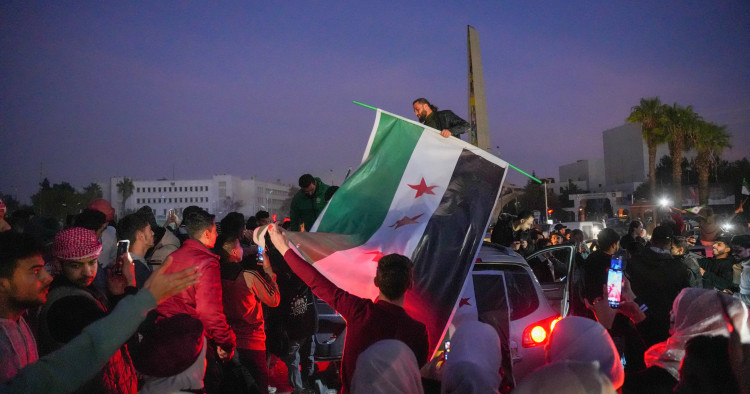
Half a century of rule by the Assad family in Syria collapsed astonishingly quickly after insurgents burst out of a rebel-held enclave and took Damascus in a matter of days. For Turkish president Recep Tayyip Erdoğan, however, it was not fast enough. He has been waiting for this moment since the Syrian uprising in 2011 and is determined to reap the benefits of Bashar al-Assad’s ousting ahead of Turkey’s 2028 elections.
Erdoğan has two big problems that a post-Assad Syria might help him solve. First, the constitution does not allow him to run for another term as president in 2028. To fix that, he has been seeking the support of the pro-Kurdish party, which has enough seats in parliament when added to his own to enable him to change the constitution. With that in mind, Erdoğan has started talks with the imprisoned leader of the Kurdistan Workers’ party (PKK). Recent developments in Syria may help him further.
Continue reading in Financial Times
Photo credit: Rami Alsayed via Getty Images
The Middle East Institute (MEI) is an independent, non-partisan, non-for-profit, educational organization. It does not engage in advocacy and its scholars’ opinions are their own. MEI welcomes financial donations, but retains sole editorial control over its work and its publications reflect only the authors’ views. For a listing of MEI donors, please click here.

Half a century of rule by the Assad family in Syria collapsed astonishingly quickly after insurgents burst out of a rebel-held enclave and took Damascus in a matter of days. For Turkish president Recep Tayyip Erdoğan, however, it was not fast enough. He has been waiting for this moment since the Syrian uprising in 2011 and is determined to reap the benefits of Bashar al-Assad’s ousting ahead of Turkey’s 2028 elections.
Erdoğan has two big problems that a post-Assad Syria might help him solve. First, the constitution does not allow him to run for another term as president in 2028. To fix that, he has been seeking the support of the pro-Kurdish party, which has enough seats in parliament when added to his own to enable him to change the constitution. With that in mind, Erdoğan has started talks with the imprisoned leader of the Kurdistan Workers’ party (PKK). Recent developments in Syria may help him further.
Continue reading in Financial Times
Photo credit: Rami Alsayed via Getty Images
The Middle East Institute (MEI) is an independent, non-partisan, non-for-profit, educational organization. It does not engage in advocacy and its scholars’ opinions are their own. MEI welcomes financial donations, but retains sole editorial control over its work and its publications reflect only the authors’ views. For a listing of MEI donors, please click here.











































